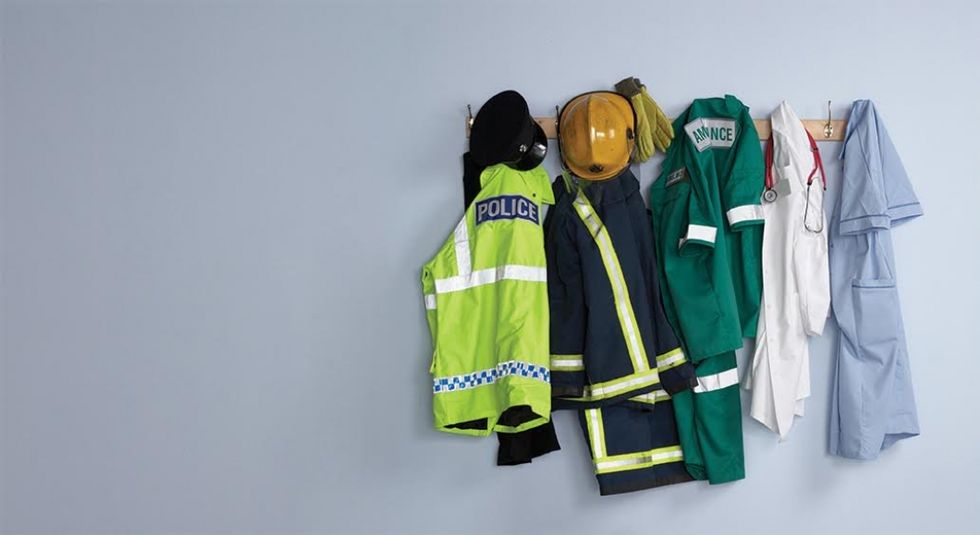During the past few weeks, the United States of America has seen more devastation than could have ever been predicted. Between the tragedy in Las Vegas, the relentless hurricanes to the south, and the threat of another hurricane off the Gulf Coast - citizens of America have had enough.
In the wake of these tragedies, heroes emerge. We have witnessed brilliant acts of heroism by everyone from citizens to first responders alike. As a nation, we cannot thank these brave men and women enough. What we can do is be there to support them in the way they support us, day after day.
First responders are at a higher risk for Acute Stress Disorder (ASD) and Post Traumatic Stress Disorder (PTSD). With the events of the past few weeks, the risk for our first responders in affected areas is even higher. While they look out for us, we need to look out for them.
Acute Stress Disorder can be diagnosed up to four weeks after a traumatic incident or event. After a minimum of four weeks, clinicians will look for the development to Post Traumatic Stress Disorder. Symptoms to look out for include the following.
- Dissociation from the self, which involves emotional numbing, reduced awareness of one’s surroundings, depersonalization, and amnesia.
- Flashbacks or spontaneous memories of the traumatic event.
- Avoidance of thoughts, feelings, or reminders of the event that bring distress to the individual
- Placing blame on self or others due to distorted sense of reality
- Loss of interest in activities
- Inability to remember the traumatic event
- Aggressiveness, reckless, or self-destructive behavior
- Sleep disturbances
- Hyper-vigilance
Noticing these symptoms in yourself, a loved one, or anyone else that you know is an indicator that it is time to be seen by a clinician. Many first responders can access help through their place of employment. If immediate help is needed, look to the bottom of this article for several resources and people to contact.
There are many kinds of events which can put a person at risk for ASD or PTSD. In order to better understand how someone can be affected by these disorders, it is helpful to know what events are risk factors. A big factor is exposure to any incident that puts the first responder or the lives of those around him/her at risk for death or severe injury. In both cases of the Las Vegas shooting and the hurricanes down south, first responders dealt with the threat of death and injury. Also, being involved in incidents where the first responder much prevent the death of another or manage a severe injury is a risk factor.
So, how can we help those affected by ASD and PTSD? In many cases, it is helpful to develop a sense of community with those affected. First responders who feel a sense of belonging, community, and emotional attachment are more likely to process their grief in a healthy manner. When community isn’t enough, mental help professionals can help affected individuals and groups by enforcing positive coping strategies and introducing different therapeutic approaches that may help.
When we needed them, our first responders and civilian heroes didn’t back down. They continually serve and protect us day in and day out. Let us all do our part to support those who spend their lives rescuing us and keeping us out of harm’s way. Make sure they know it is OKAY to ask for help and to admit to what they may be struggling with.
The following resources are available in the United States, beginning with people you can call immediately. For more resources, consider looking into The Code Green Campaign for resources including state by state, inpatient treatment centers, online resources, and even international resources.
FOR IMMEDIATE HELP:
Fire/EMS Helpline - 1-888-731-FIRE (3473)
Share The Load is a program run by the National Volunteer Fire Council. This free 24-hour helpline offers assistance with issues such as stress, depression, addiction, PTSD, and more. Depending on your needs, you can talk to a trained fire service member who understands what you are going through.
National Suicide Prevention Lifeline - 1-800-273-8255
The national suicide hotline is not first responder specific, but they can and will take to anyone who needs help. Any time of day or night. You are not alone in this fight, and those who volunteer for the lifeline are here to support you.
Copline - 1-800-267-5463
Copline is a national hotline that provides a safe and confidential outlet to call when there it seems that there is no one else around who can understand the mindset of a cop. It is manned by peer counselors who are retired law enforcement officers. Active officers and their families can call anytime, 24 hours a day, and know there is a trained officer on the other end of the line.
Frontline Helpline - 1-866-676-7500
All calls are confidential, and you will speak with another first responder. This line can be called 24/7 as well and can help with addiction, anger management, depression/anxiety, sleep deprivation, PTSD, stress, and divorce/family issues.
Remember, you and your loved ones are never alone. I hope by reading this you can gain a better understanding of ASD and PTSD and be more able to assist those affected by it.
As a disclaimer, my words do not replace the expertise of a medical professional. If you or someone you know wants or needs help, please contact your medical provider or seek mental health treatment. Mental health issues and emergencies can affect anyone, and there is no shame in finding help.








































